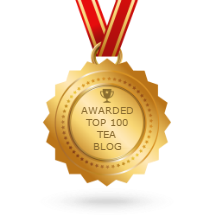
Tea and your health is a topic that abounds, both online and in print. The Internet, in fact, has led to an explosion of health sites, some legitimate and others — well, let’s just say that you need to be cautious and look at who is behind the site.
Tea and health claims are fairly wide-reaching and include diabetes, various forms of cancer, weight loss, hair and skin beauty, overall anti-aging, blood pressure and cholesterol levels control, digestion easing, headache relief, and even fertility. If everything written about health benefits from green tea are true, we should all be chugging the stuff by the gallon. And now, black tea is being touted as just as healthy as green tea.
A couple of points to keep in mind when looking up tea and health information online:
- Go to the original study when you can find it. It will probably read like some language used by aliens from outer space. But there is usually a summary.
- When reading an article about tea and health benefits, be sure the author is someone who can understand the medical study info and bring it to you in a clear and accurate manner. Most science and medical reporters fall far short of this. The run-of-the-mill journalist isn’t even in the same ballpark. The phrase “It is well known that tea aids in…” is a dead giveaway that the article is little more than echoing others who have echoed others who have echoed…

Most of the health info I have come across online has been on either content mill sites or tea sites, both lacking any verification that the authors have any legitimate medical credentials. Ezinearticles.com, Tea.topicgiant.com, Suite101.com, and Café-list.com are content mills. Relaxsipenjoy.com, Teagenius.com, Revolutiontea.com, Tealaden.com, Teabenefits.com, Teaarticles.com, and Learn-about-tea.com are tea sites. Most tea vendors also link to or directly post articles on tea health. This isn’t necessarily an indication that the information is unreliable, but it is an indication that you should dig a little deeper and verify what is in the article.
One exception is WholeHealthMD.com — according to their site, they are the “result of the collaboration of medical writing specialists, conventionally-trained physicians and integrative CAM specialists who practice in integrative medicine centers.” Another is HealthCastle.com with articles from Registered Dietitians, including founder Gloria Tsang, RD. There is also a great table of nutrients in tea on the USDA site. There are legitimate studies showing the effects of catechins, polyphenols, flavanoids, etc., in tea on the human body, but you have to dig for them.
The most important tip is to verify any tea health claims with your doctor, something that is good to keep in mind no matter what health info you are seeking.
© Online Stores, Inc., and The English Tea Store Blog, 2009-2014. Unauthorized use and/or duplication of this material without express and written permission from this article’s author and/or the blog’s owner is strictly prohibited. Excerpts and links may be used, provided that full and clear credit is given to Online Stores, Inc., and The English Tea Store Blog with appropriate and specific direction to the original content.



Leave a reply to maykingtea Cancel reply